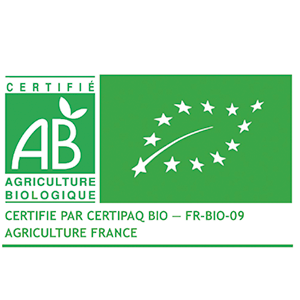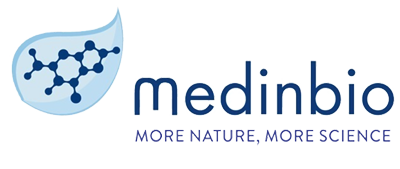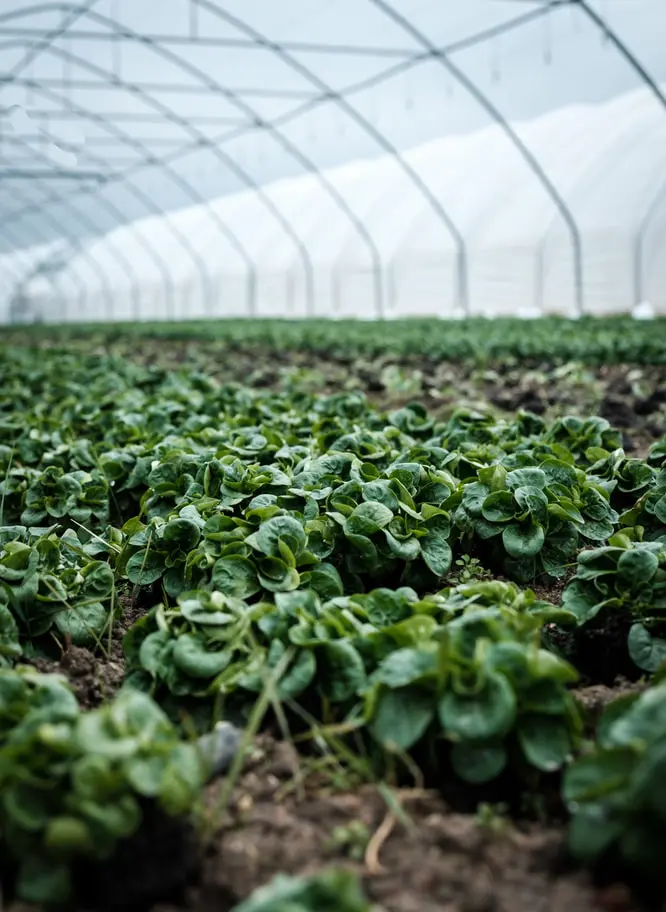The "Organic Agriculture" certification promotes agricultural production methods that respect the natural balance and are committed to the exclusion of synthetic chemical fertilisers and phytosanitary products. It subjects farms to strict regulatory requirements and frequent checks.
Medinbio aims to support farmers, producer organisations, agri-food industries and retailers in their efforts to reduce pesticides so that they can apply for organic farming certification.
Organic Agriculture certification in France
Organic farming is defined as a system of agricultural management and food production that aims to establish a sustainable agricultural management system. Thus, organic farming is based on virtuous environmental practices with considerations of improving soil quality and biodiversity achieved through the exclusion of pesticides and chemical fertilisers.

Products likely to carry the Organic Agriculture label
The Organic Agriculture certification concerns :
- unprocessed agricultural products ;
- processed agricultural products for human consumption;
- animal feed ;
- seeds and vegetative propagating material.
These products must be organically produced.
- Regulatory requirements
This certification is based on regulatory requirements framed by a European regulation: Regulation (EC) No. 834/2007 with the ambition to guarantee :
- the organic quality of the labelled products;
- biodiversity enhancement ;
- preservation of natural resources;
- compliance with high standards to address animal welfare;
- a production method using only natural products.
Thus, certain conditions must be met for a product to be awarded the Organic Agriculture label. One of the most important is the use of production methods based on natural substances and products. Therefore, the normative provisions prohibit the use of synthetic chemical pesticides and fertilisers, as well as GMOs and products obtained from or by GMOs, both in production and in processing.
The European organic logo, like the AB certification mark, identifies products that are 100% organic or contain at least 95% certified organic ingredients for processed products. Other agricultural products are not allowed to include the terms "organic" or "bio" in their sales description. Below the 95% organic threshold, these terms can only appear in the list of ingredients.
To ensure the effectiveness of such measures, it is necessary to take the necessary precautions to avoid contamination. Therefore, the regulations impose a The regulations therefore require separate production for mixed (organic and conventional) production. Dedicated storage areas for organic products must also be provided.
The obligations of organic operators to obtain AB certification
All organic operators (producers, wholesalers, processors, importers, etc.) must sign a contract with a certification body approved by the National Institute of Origin and Quality (INAO), which will have the role of controlling their activity.
In addition, organic operators are obliged to notify their agricultural activity to theAgence BIO. This organisation is responsible for keeping an up-to-date directory of organic professionals. This document is mainly useful for control bodies and authorities.
The controls
By delegation from the Ministry of Agriculture, the certification bodies approved by the INAO must check that farmers comply with the regulatory requirements for Organic Agriculture certification at least once a year.
In addition, the General Directorate for Competition, Consumer Affairs and Fraud Control (DGCCRF), as part of its mission to monitor markets and protect consumers, has the role of controlling the marketing of organic products. The DGCCRF is responsible for ensuring that the rules on organic production and product labelling are respected.
The Medinbio method for the creation of an Organic Agriculture chain
The company Medinbio offers complete support for the creation of an agro-ecological chain labelled without pesticides that can obtain the Organic Agriculture certification. Medinbio's offer is aimed at farmers, producer organisations, supermarkets and the food industry. This innovative model aims to promote production methods that are more respectful of health and the environment, with high yields.
The innovative method developed by Medinbio to create pesticide-free agroecological chains is based on an aggregative system approach associated with natural formulations. This approach is conceived as a biostimulation system allowing Medinbio solutions to be adapted to the problems and challenges of each farm. These natural solutions are presented as synergistic actions applied at the right time to ensure satisfactory protection for the plantations.


